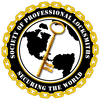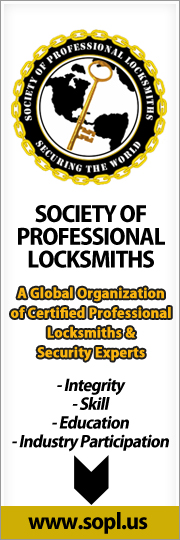|
The locksmith licensing charade, as many of us have been predicting, has been revealed. The result of this charade has been devastating to many within the industry and to the industry as a whole. The winners, if you can call them that, are some of the larger companies. Everyone else - the mom and pop shops, the consumers, the sole proprietors, future locksmiths, many smaller companies, the reputation and character of the locksmith trade, even local economies and government - has lost. This is no exaggeration. Any industry or trade that has suffered the losses the locksmith trade has suffered under the licensing scam has been severely damaged. This damage was not inflicted by outsiders, but by self-anointed leaders of the trade. This damage was not inflicted by outsiders, but by self-anointed leaders of the trade. Imagine if 80 percent of electricians left their jobs. Imagine if 4 out of 5 doctors walked away from their practices. Imagine if there was only one fifth the number of car mechanics available. This is what has happened within our industry and, no, this has nothing to do with Covid-19. This is what happened in the state of Tennessee in the ten year period following the introduction of their locksmith licensing law. In 2006, there were about 5,000 licensed locksmiths in Tennessee. In 2016, the number was reduced to under 1000. (https://tennesseestar.com/2020/03/09/tennessee-subcommittee-will-reconsider-ending-locksmith-licensing-if-budget-allows/) The above-referenced article from the Tennessee Star, written by Tyler Arnold, published March 9, 2020 refers to the dwindling number of locksmiths as “the downfall of the industry.” He reports that Tennessee State Representative “Jay Reedy, R-Erin, told the House Finance, Ways and Means Subcommittee that the state’s licensing requirement has contributed to the downfall of the industry. He said there were about 5,000 locksmiths in the state when the state started mandating the license in 2006, but this number dropped to below 1,000 in 2016.” The good news is that Tennessee has no dropped its locksmith licensing requirements. Effective May 27, 2021, Tennessee is no longer licensing locksmiths. Tennessee locksmiths were notified in a letter dated July, 7, 2021 from Tennessee's Department of Commerce and Insurance. It is interesting to note that the Department of Commerce and Insurance’s letter mentions that consumer complaints will still be handled by Tennessee’s Attorney General’s Office. That is where most states handle consumer complaints whether the businesses are licensed or not. In other words, the locksmith licensing law was never really about protecting the consumer, the Attorney General’s Office already did that and will continue to do so. Locksmith licensing laws are a tool for established businesses to limit competition, and Tennessee’s law did that effectively, costing thousands of jobs.
0 Comments
Written By: Barry Campbell, Director of Operations SOPL  Kurtis Ming, from CBS 13 in Sacramento, recently reported on “The Dark Side of the Locksmith Industry.” There are some notable things about this report, both good and bad. The first is his reference to the “one time nature of locksmiths.” While most professional locksmiths endeavor to foster relationships with repeat, long-term customers, I think Ming has pointed out a popular misconception – that the main reason to call a locksmith is when you've locked yourself out of your home or vehicle, or perhaps to replace a lost car key. Sure, people who think like that probably also think the local hardware store carries the best in lock hardware, but the point is that there is a huge potential market out there of people who simply don't know any better. Then there is the “simple lock picking” comment. More correctly, the report might have focused more on the “simple lock.” Not hard to teach someone to pick open a hardware store lock, but most locksmiths can combinate even these locks to be more difficult to pick. Professional locksmiths also may have the tools and knowledge to enable them to bypass even the “unpickable” lock without damage. Part of the problem, in this case, may have come from within the industry. How many of you have had a call to “pop” a lock? Many are easy, but many are not – sometimes by design and sometimes because of the condition of the lock. Regardless, the implication that picking is easy and should not cost much is unjustified. I rather like the response of locksmith David Knosalla in an article from The Princeton Union-Eagle, where he was able to quickly and easily open a safe - “You called for an expert and that's what you got.” Now, if you carry just a long-reach tool and a drill for all your unlocks, you're no expert; but if you are a professional with the tools and knowledge to tackle virtually any situation, you are justified in charging what you are worth. The article improves when Ming identifies the “locksmiths” called out to unlock the homes, including their license numbers. Yes, what more proof do you need that scammers can get a license whenever they need to? Even better, he confronts a spokesman from the Bureau of Security and Investigative Services that oversees the locksmith licensing. The interview was priceless: Heimerich told Call Kurtis BSIS had received 281 locksmith complaints in the past two years, but Call Kurtis has learned only 17 locksmiths were actually cited, and none had their licenses revoked. That's right; 281 complaints, 17 cited, and not a single license revoked in two years! How many times does it need to be proven? Licensing neither stops the scammers nor protects the consumer! The saddest part of the report, though, had to be the recommendation from the California Locksmith Association (CLA). Given that the ineffectiveness of licensing was just shown, they could only recommend that consumers should verify the locksmith's license. Was that really the best they could do? So in the darkness of it all the Society of Professional Locksmiths has helped shine a light on the shady business of licensing and how it is contributing to a false sense of security and a false sense of safety for the consumers. As these news reports increase we may see some bright sides in the coverage but in the end we find that relying on the idea of someone being licensed is like standing in the dark. Can anyone seriously claim that licensing has illuminated our industry? By Barry Campbell, SOPL Managing Director "People of the same trade seldom meet together, even for merriment and diversion, but the conversation ends in a conspiracy against the public, or in some contrivance to raise prices. It is impossible indeed to prevent such meetings, by any law which either could be executed, or would be consistent with liberty and justice. But though the law cannot hinder people of the same trade from sometimes assembling together, it ought to do nothing to facilitate such assemblies; much less to render them necessary." Adam Smith, The Wealth of Nations: An Inquiry into the Nature & Causes of the Wealth of Nations In a nutshell: State licensing boards are under fire from the Federal Trade Commission for restricting competition, raising consumer prices, violating antitrust laws, and reducing customer choices.
All arguments about the effectiveness of licensing aside, are the licensing boards operating legally themselves? Perhaps not, according to the Federal Trade Commission (FTC). The problem resides in the fact that they are generally composed of practicing members of the regulated industry, which begs the question of whether they are in violation of antitrust laws. The motives for supporting licensing are especially suspect when the support comes from the industry itself. Do the licensing boards operate to protect the public or themselves? |
Categories
All
|
Services |
Company |
|




 RSS Feed
RSS Feed
